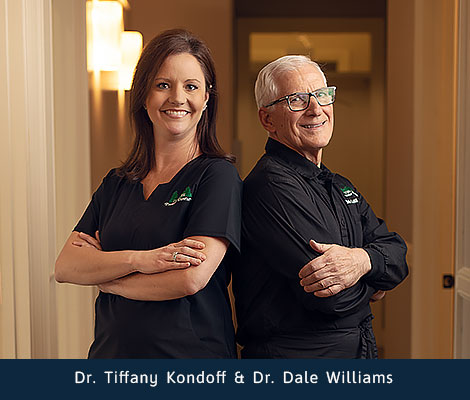DENTIST in CEDAR PARK
Call, or click REDEEM HERE for more details!
A message from our team
Dental Services in Cedar Park
INVISALIGN
VENEERS
IMPLANTS
SMILE
MAKEOVER
SLEEP
MEDICINE
DENTAL
SAVINGS
Welcome To Cedar Park Premier Dentistry
Cedar Park dentist, Dr. Dale Williams, and his friendly team welcome you to Cedar Park Premier Dentistry!
From diagnosis to treatment, you’ll receive the most accurate and high quality dental care from some of the friendliest dental professionals in Cedar Park, TX. Whether you want to maintain or improve your smile, we can accommodate your dental health needs.
At Cedar Park Premier Dentistry, we diligently work to provide you the best in personalized, professional, and long-lasting dental care in the most caring and supportive atmosphere. Your health is always our number one priority.


MEET The DOCTORS
Dale Williams DDS, senior dentist and owner at Cedar Park Premier Dentistry, has been delivering the utmost in high level dental care to patients for over 30 years. Having graduated number one in his class from the University of Texas Health Science Center-San Antonio dental school, Dr. Williams strives to continually employ the most progressive dental techniques and procedures for his patients. You will find that his entire dental career has been focused on creating great smiles, offering comfortable dentistry at the highest level, and cultivating amazing patients as friends. Our dentist, Dr. Tiffany Kondoff, grew up in Cedar Park and attended Cedar Park schools through her senior year in high school. She then attended and graduated from Texas Tech University with a degree in biology. She completed her education in dentistry at the University of Texas Health Science center in San Antonio.
Happy Patient Testimonials

2 months ago

a month ago

a week ago NEW

5 months ago
State-of-the-Art Dental Care
At Cedar Park Premier Dentistry, we use state of the art technology and cutting edge clinical procedures to provide you with an exceptional dental experience. Our dental clinic is home to a CEREC CAD/CAM system for manufacturing crowns in-office, a Sirona Galileos 3D Cone Beam Scanner providing the best quality digital x-rays, and a VelScope oral cancer detection device.
Each of these devices provides you with the best diagnosis and treatment that modern dentistry can provide in Cedar Park, Texas.
CEdar Park
Premier Dentistry
ADDRESS:
209 Denali Pass Dr. Suite B
Cedar Park, TX 78613
HOURS OF OPERATION:
*Closed Saturday & Sunday

